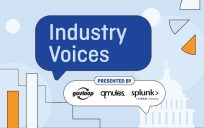The Associated Press Twitter hack might have been the wake-up call that we needed.
Social media is a wonderful thing. It’s fast, reaching a large and diverse audience in no time and it provides a platform for interaction between an agency/company/organization/individual and its constituents/customers/patrons/fans. But that speed and distance could prove risky if a tweet was incendiary or inaccurate. However, the risks that a political figure might take by tweeting a through without consulting a PR manager first seems far less than one that a major news company or federal agency might take.
The Associated Press’ Twitter account was hacked yesterday posting a tweet stating “Breaking: Two Explosions in the White House and Barack Obama is injured.” Luckily, the tweet was soon deemed fake by individuals such as White House staffers and by @AP followers who noted the uncharacteristic syntax and format of the tweet. However, within the short amount of time for the Associated Press to announce that it was hacked, panic spread on Wall Street causing the Dow to plummet. In the end, all is well at the White House, the Associate Press and on Wall Street, but cyber security is now at the front of people’s minds. Is social media safe?
A bad action to take would be for agencies and media companies to shut down their social media accounts. The hack has not proven that Twitter, Facebook, and the like are impossible to protect, but rather that they need to be given the same amount of security measures that other accounts and sites in the agency are given. These include two step verification processes for posting material on social media sites, as well as protecting logins and passwords in e-mail accounts. The Associated Press was reportedly hacked through a convincing phishing email that then gave access to a staff member’s login information; this brings to light the need to train staff in how to recognize cyber attacks so they are able to protect themselves, and therefore the agency, from cyber attacks. GovLoop recently released and infographic, Cyber Security in Focus, outlining the most common types of attacks and where they occur most in order to help people become more cyber-savvy.
Cyber risks aside, the hack also calls attention to the power of social media. One tweet greatly affected the Stock Market. If the tweet wasn’t identified as a hack sooner, how much more damage could have been done? Agencies need to recognize this power for two reasons. One, the potential for social media to connect to constituents cannot be underestimated and should be used in a well crafted digital strategy and citizen engagement program. Two, people want to believe what they read, even if its on Twitter, so, if done properly, an agency can establish reliability with its constituents but posting legitimate content. Social media posts should not be left in the hands of an inexperienced employee; employees should be trained on how to write posts and publish them, what is appropriate, and that the information needs to be verified and access to the account is secure.
Social media is tricky for media outlets and businesses, but it is even trickier with government agencies because the public wants to be able to depend on the accuracy of information provided.
How has your agency dealt with cyber security? Share your experiences with hacks, cyber-attack prevention, and creating a responsible social media presence.
If you are interested in learning more about social media in the government, check out GovLoops latest guide,
“The Social Media Experiment in Government: Elements of Excellence”.
Want More GovLoop Content? Sign Up For Email Updates




Leave a Reply
You must be logged in to post a comment.